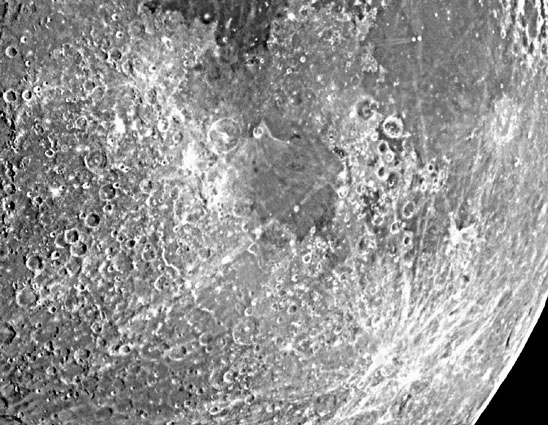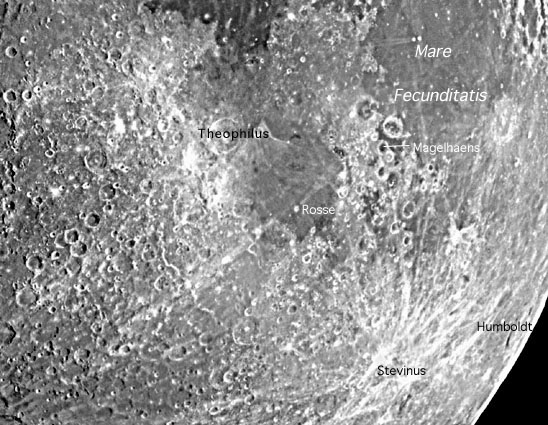November 6, 2015
Bright & Dark
Originally published November 5, 2004
Image Credit: Paolo Lazzarotti |
|
Bright & Dark First, I must apologize to Paolo for over-enhancing one of his very good mosaics of a 10-day old Moon! The purpose is to explore the extremes of light and dark that appear in this southeastern quadrant of the Moon. This is a region striped by Tycho's rays, and containing the very bright but small ray craters on both sides of Stevinus. It also has some lesser known ray craters west of Mare Nectaris, but perhaps more interesting are the dark splotches. Because of the good libration the mare material within the limb crater Humboldt is well seen, and there is a colony of dark-floored craters near Magelhaens at the western shore of Fecunditatis. Nectaris itself has a light hued surface, but containing a variety of dark spots. Southeast of Theophilus are two small dark halo craters. These haloes are not due to volcanic eruptions, but they are dark mare lavas excavated and spread as ejecta around the small craters. Similarly, there is a darkish ring around the rim of Rosse, which also has an associated radiating ray - from Copernicus? On the northern edge of Mare Nectaris is a very dark arc on the rim of Daguerre - this is a volcanic pyroclastic deposit. The ill-defined, somewhat dark patches near the center of Nectaris and along it southeastern shore appear to be spectrally similar to the surrounding medium-titanium basalts, but they are darker. Technical Details: Related Links: Yesterday's LPOD: Norwegian Ring Tomorrow's LPOD: Little Known Fault |
|
Author & Editor: |
COMMENTS?
Register, Log in, and join in the comments.





